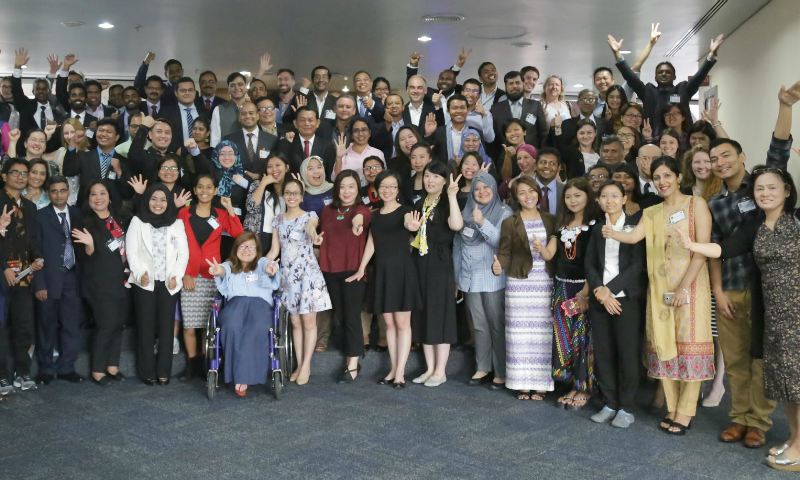
The Workshop on Evidence-based Policies on Youth Development in Asia, and the Workshop on Promoting the Sustainability of the Youth Policy Toolbox in Asia-Pacific were held in Bangkok at the UNCC from 29 May to 1 June 2017. These workshops were organized by the UNESCAP and UNDESA, in partnership with the Commonwealth and several United Nations entities, including UNDP, UNESCO, UNFPA and ILO. More than 80 officials from government, civil society, youth representatives and international partners discussed ways to increase the use of youth indicators and global data in the national youth policies.
Many participants have recognized young people and evidence-based youth policies as “essential components” of their nations’ development, and called for recognition and investment by Asian leaders. They also agreed to devise country action plans to strengthen their youth policy development and implementation.
Over 60% of the world’s youth population lives in the Asia-Pacific region, or 717 million young persons aged 15 to 24 years. Within the region itself, young people account for 19% of the population. Many youth across the region have benefited from its social and economic development. Youth unemployment remains the lowest among all regions of the world, at 11%. Between 2000 and 2011, secondary and tertiary education enrollment rates increased from 51 to 64% and 14 to 26% respectively.
Though net enrolment in secondary education has been steadily increasing challenges persist. Transition to the labour market remains a major challenge as youth unemployment is more than double the rate of the total working age population. Asian youth can be a great force for economic and political change, namely an indicator of a coming demographic dividend, if countries make strategic investments in health, education and governance at all levels.
The 2030 Agenda recognizes young people as agents of change. The global focus on the implementation of the 2030 Development Agenda and its sustainable development goals, provides young people and other stakeholders with an opportunity to be more meaningfully involved at all levels, particularly as pertaining to the implementation, monitoring and evaluation of youth related policies aimed at bolstering the 2030 Agenda.
UN Secretary-General António Guterres said: “I hope that new generations will be able to do what the present generation has not been able to do: to strengthen a democratic multilateral governance mechanism in order to allow peace to prevail in our world."
Over the four-day workshop, participants discussed how evidence can be used at all the youth policy process, from formulation to monitoring. They also shared good practice on youth engagement and social inclusion in youth policies, and developed their capacity to mainstream youth in sectoral policies.
Participating countries, represented by youth ministry officials, regional and national youth leaders and national statisticians, were: Bangladesh, Brunei Darussalam, Cambodia, China, India, Indonesia, Lao PDR, Malaysia, Maldives, Mongolia, Myanmar, Nepal, Pakistan, Philippines, Singapore, Sri Lanka, Thailand, Timor-Leste and Viet Nam.
Resources:
Concept Note
Agenda
Information for participants
Source: UNDESA DSPD & UNESCAP
For more information about UNDESA DSPD's work on youth, please visit: www.un.org/youth
 Welcome to the United Nations
Welcome to the United Nations